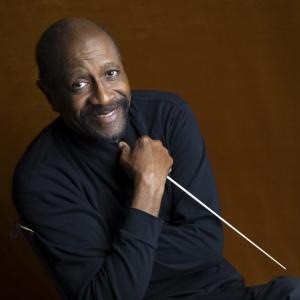Interlochen Online's next session begins May 6—enroll in any course or certificate program now.
Four reasons to study music production and engineering
Interlochen Arts Camp Instructor of Music Production and Engineering Jeanine Cowen shares the benefits of mastering the microphone.
Recording is universal for the musician. Whether you’re a young instrumentalist recording your audition tape, an up-and-coming band making a demo reel, or a seasoned performer producing an album, you’re going to find yourself in a recording studio.
With the advent of digital technology, music production has becoming increasingly accessible to musicians of all ages. But as intimidating as it can be, music production is a essential addition any musician’s toolkit.
To meet growing interest, Interlochen Arts Camp will offer a three-week program this summer in Music Production and Engineering for students in grades 6-12. Led by acclaimed composer, music producer, sound designer, and Berklee College of Music professor Jeanine Cowen, the program will give students the opportunity to master the basics of production and engineering.
Below Cowen offers her take on why it’s imperative for young musicians to study music production and engineering.
1. It’s generative. For most musicians, recording comes at the end of a long writing and rehearsal process. That doesn’t have to be the case, argues Cowen. “A lot of the performers that I work with use their recording devices as a kind of ‘scratch pad,’” she said. “Sometimes those test recordings come out really well, and they’re able to use them down the road.”
2. It’s confidence-boosting. Whether you’re a high school student recording an audition tape or a professional making your first album, performing in front of a microphone can be intimidating. A background in production can help. “For artists who have learned production, the technology falls away when they’re in the studio,” Cowen said. “If you don’t have to worry about the technology, you’ll be able to feel comfortable and play your best.”
3. It’s collaborative. By the very nature of their career, music engineers work with a wide variety of musicians to create a finished product. For Cowen, it’s one of her favorite aspects of the job. “It’s so interesting to collaborate with other musicians,” she said. “I’ve learned some of the best things from players who play instruments that I’m not familiar with. Music production gives you the opportunity understand music in a different way, with some really powerful outcomes.”
4. It’s a career. If you’ve decided performance isn’t for you but still want to be involved in music, engineering is a great option. A degree or vocational certification in music engineering opens the doors to a wide variety of careers. “A lot of people will end up working at larger music studios, small indie studios, or even building their own home studio,” Cowen said. “Others find jobs working for live sound venues.” While recording others’ music may be seen as a sacrifice of your own artistry, Cowen maintains that opportunities for creativity abound in the production industry. “Many times, music engineers are just as creative as the artists they’re working with,” she said. “They use their tools to add their own artistry and vision to the work.”





